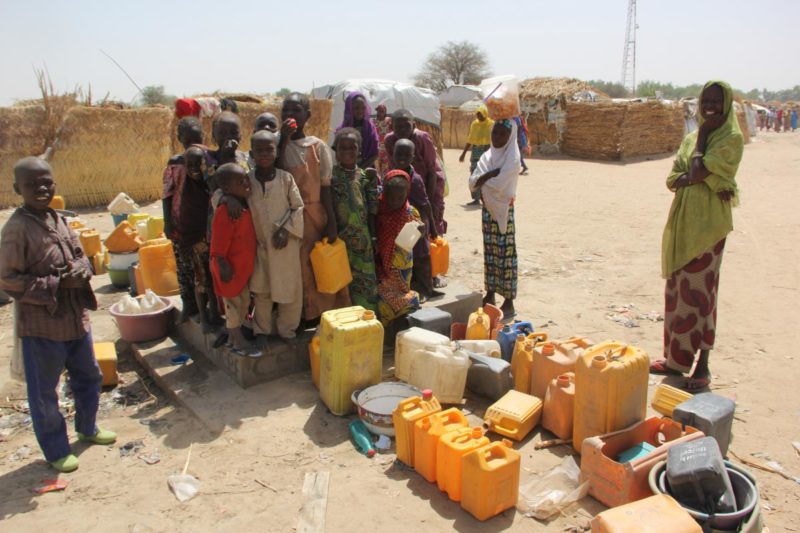WaterAid Nigeria has commended the Federal Government for it describes as a “bold step” in declaring a state of emergency in the water, sanitation and hygiene (WASH). The organisation said that the action was informed by its calls as well as those from other members of the sector, demanding action to tackle the water and sanitation crisis in the country.

WaterAid, an international charity dedicated to changing lives by improving access to water, sanitation and hygiene for the poorest and most marginalised communities, advocated for a state of emergency to ensure that the Sustainable Development Goal of access to water and sanitation for everyone, everywhere by 2030 would be achieved.
Although Nigeria is oil-rich and has sub-Saharan Africa’s largest income, it has nonetheless struggled to deliver clean water and sanitation to its people. The country appears to have remarkable progress in reaching people with water: seven in 10 people now have clean water to drink. But a gap between poor and rich persists, as only 30 percent of the poorest people have access to clean water, compared to 89 percent of the richest, says WaterAid.
It adds that, with fewer than three in 10 people having a decent toilet, the country has a big task ahead to achieve the Sustainable Development Goal targets for water and sanitation access.
On 2018 World Water Day, WaterAid Nigeria urged the Federal Government to declare a state of emergency in the water and sanitation sector. WaterAid Nigeria also called on the Federal Government to set up a presidential taskforce empowered to lead, coordinate and deliver on providing water and sanitation for all Nigerians.
In its declaration of the state of emergency in WASH, the Nigerian government states that the WASH sector in Nigeria is in crisis and that urgent action is required for its revitalisation. The government announced the development of a National WASH Action Plan that will set out a 13-year strategy for the WASH sector, including an 18-month emergency phase. It includes the establishment of a National WASH Fund for increased financial investment for WASH.
WaterAid Nigeria Country Director, Dr ChiChi Aniagolu-Okoye, said: “I am utterly delighted that the Federal Government has declared a State of Emergency in WASH, following our campaign demands during World Water Day and beyond. We hope that, with this declaration, more attention will be focused on the sector. This is a significant step towards achieving clean water, sanitation and hygiene for everyone, everywhere by 2030.
“WaterAid urges all governments to take action ahead of the UN’s High Level Political Forum in New York in July, where Goal 6 of clean water, sanitation and hygiene for everyone, everywhere by 2030 will come under review. Without water, decent sanitation and good hygiene, other Sustainable Development Goals, including those on gender equality, education, health, reducing inequalities and nutrition, cannot be achieved.”
While commending the increased prioritisation for WASH that this new declaration indicates, WaterAid Nigeria continues to call for:
- Government backing of this declaration with significant investment and raise the financing needed to assure sustainable and affordable WASH services for all.
- The Federal Government to ensure that the National Healthcare Act which requires 1% of the Consolidated Revenue Fund to be channelled to healthcare is implemented with clear inclusion of WASH in healthcare priorities.
- Multi-sectoral coordination and clarity of institutional arrangements, the lack of which is hampering the development of needed policies (such as the national sanitation policy) and hindering robust sector plans and policies with critical inputs of sector actors and sufficient ownership by allied sectors.
- A harmonised monitoring and supervision platform for the sector. Those that exist are duplicative, non-inclusive, unreliable and not owned by all key sector actors. Gaps in Nigeria’s monitoring frameworks for the sector sabotages sector planning and make it difficult to measure the impact of WASH interventions and track progress of WASH access.
- States and local governments to take advantage of the state of emergency by launching the same in their respective states
